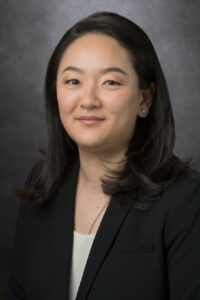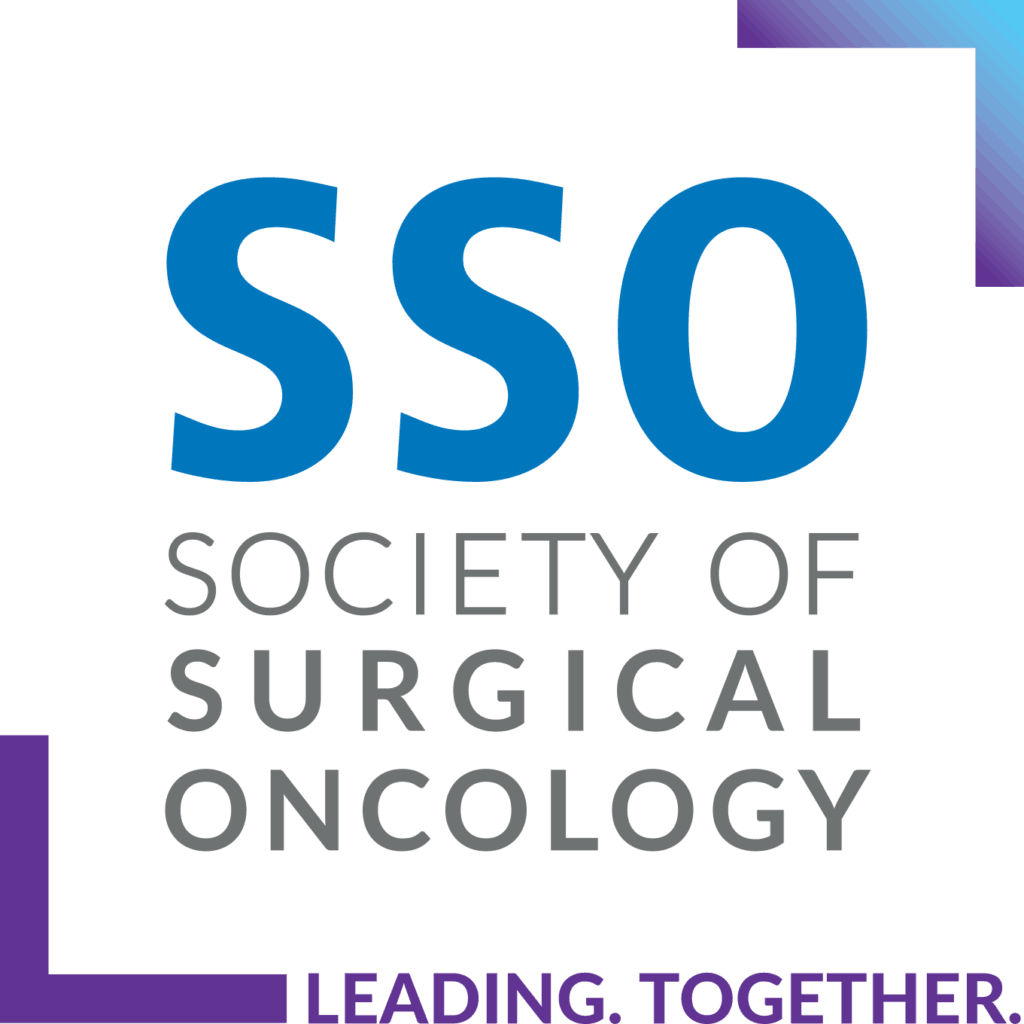Emily Z. Keung, MD, AM, FACS receives 2022 SSO Young Investigator Award
 The Society of Surgical Oncology (SSO) has awarded more than $150,000 in research funding to eight researchers through its Young Investigator Award (YIA) since 2016. The award is intended to promote and recognize translational or clinical research that supports innovative ideas and concepts to improve health outcomes through advances in cancer care. The SSO Research and Education Fund, a restricted fund of the former SSO Foundation, supports the Society’s research grant program. 2022 Award recipients were recognized in March at the SSO International Conference on Surgical Cancer Care in Dallas. Emily Z. Keung, MD, AM, FACS, Assistant Professor of Surgery at The University of Texas MD Anderson Cancer Center submitted the winning proposal entitled, The Impact of Perioperative Antibiotic Prophylaxsis on the Fecal Microbiome in Patients with Cutaneous Malignancy.
The Society of Surgical Oncology (SSO) has awarded more than $150,000 in research funding to eight researchers through its Young Investigator Award (YIA) since 2016. The award is intended to promote and recognize translational or clinical research that supports innovative ideas and concepts to improve health outcomes through advances in cancer care. The SSO Research and Education Fund, a restricted fund of the former SSO Foundation, supports the Society’s research grant program. 2022 Award recipients were recognized in March at the SSO International Conference on Surgical Cancer Care in Dallas. Emily Z. Keung, MD, AM, FACS, Assistant Professor of Surgery at The University of Texas MD Anderson Cancer Center submitted the winning proposal entitled, The Impact of Perioperative Antibiotic Prophylaxsis on the Fecal Microbiome in Patients with Cutaneous Malignancy.
Dr. Keung received her medical degree from Harvard Medical School. She completed a general surgery residency and surgical critical care fellowship at Brigham and Women’s Hospital / Harvard Medical School and a fellowship in complex general surgical oncology at The University of Texas MD Anderson Cancer Center. She joined the faculty of the Department of Surgical Oncology at MD Anderson in 2019, where her clinical practice focuses on caring for patients with soft tissue sarcomas and cutaneous malignancies. Her research focuses on the role of immunotherapy in the treatment of soft tissue sarcoma and melanoma.
With the introduction of immune checkpoint blockade therapies, the treatment of various cancers has evolved over the last 10-15 years. Still, not all patients respond to immunotherapies. Dr. Keung and her team wanted to understand why some patients respond well to immunotherapy, while others are or become resistant. “We’ve observed an association between the gut microbiome and how patients respond to immunotherapy,” she explained, “but we wondered what factors might alter or influence someone’s gut microbiome that could be modifiable. Diet is certainly one factor, but so are antibiotics. Normally patients receive a preventative dose of antibiotic before undergoing surgery in an operating room. However, for lower-risk surgeries like those performed for early stage skin cancers, there is not enough robust evidence to show how a single dose of antibiotics might affect the gut microbiome.”
Dr. Keung’s initial research will focus on early-stage melanoma patients. Researchers are hopeful the information gained from this study will inform future research, possibly expanding from melanoma to other types of cancer. The study is not meant to look at cancer outcomes; rather, it is meant to examine the effects of a single dose of antibiotics on the gut microbiome and how long these changes persist following surgery. Data from patients with more advanced stages of disease show that the presence, types, and composition of bacteria in the gut can affect response to immunotherapies.
In this study, patients undergoing surgery for clinical stage I and II melanoma were randomized to either receive a single dose of cefazolin during surgery or no antibiotic. Patients collected their own stool samples prior to surgery and at multiple timepoints after surgery, and returned them for 16S sequencing. A part of the funding from SSO will support further study of a particular subset of samples for metagenomic sequencing.
Researchers are learning across cancer types that, instead of labeling bacteria as “good” or “bad,” different bacteria are associated with different outcomes. The study initially proposed that even a single dose of IV-administered antibiotics would alter gut bacteria. With results of the 16S and metagenomic sequencing, Dr. Keung hopes to learn about the composition of the study participants’ gut microbiome and how, and for how long, a single dose of intraoperative prophylactic antibiotic might perturb this.
As an early investigator, Dr. Keung has gained greater appreciation of the challenges of conducting human subjects research through her work on this pilot study. “It requires a hefty time and resource commitment from patients who come to our clinic already worried about facing a new melanoma diagnosis. Participating in a clinical trial means that they must prepare for surgery while also making the effort of collecting and sending their samples according to the study schedule.” Study activation and enrollment has also coincided with the COVID-19 pandemic, presenting yet another set of challenges. “It is a significant commitment, and we are grateful to those who take part,” she expressed.
Dr. Keung’s career at MD Anderson started in 2012 when she first joined the institution as a research resident in the laboratory of Dr. Lynda Chin in the Department of Genomic Medicine. Among her mentors influential in her career, she credits surgical oncologist and surgeon-scientist Jennifer Wargo, MD, who has been instrumental in developing the field of microbiome study; pathologist Alexander Lazar, MD, PhD; and Christina Roland, MD, section chief of the institution’s sarcoma department. “This is an exciting time to be a clinical investigator. I am grateful to SSO for supporting young investigators like myself and this study, and for providing a robust international platform where surgical oncologists at all levels in their career are able to collaborate and learn from each other.”
SSO’s research grant program is supported by the SSO Research and Education Fund, a restricted fund of the SSO Foundation. The availability of research grant funding is dependent upon the financial support of SSO members and donors. Please donate generously to ensure that SSO members have an ongoing source of funds for research projects. 100% of your donation supports this program.





